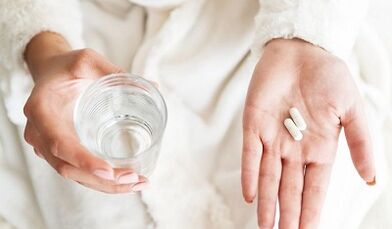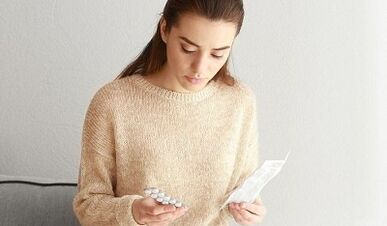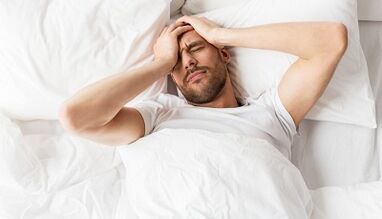When taking drugs, people often face the problem: how long can they drink alcohol after antibiotics.It's hard to say how long it's been since the drug has been completely removed from the body - because all antibiotics do differently, doctors will definitely answer this question.In addition, when patients not only prescribe antibiotics, but also have special diets, there is also a disease.In this case, alcohol is prohibited.
About drugs

Antibiotics - Products of microbial lifespan (these are usually mushrooms and their synthetic derivatives).They are used to treat infections caused by bacteria.They are all produced in capsules and tablets because they are very convenient.
However, for any antibiotic, there are general rules for receiving:
- Any medication can only be prescribed by a doctor, depending on the severity of the disease and the characteristics of the patient's body.
- Antibiotics are not used as treatments for viral diseases.
- Consider the results of any antibiotic action for the first three days - if the medication helps, discontinuation of treatment is not recommended.If the symptoms continue to progress, you should consult your doctor again.
- If a nausea or unpleasant smell is displayed, the treatment process will not stop.
- You can't control the doses prescribed by your doctor - too small doses of antibiotics are dangerous to the body.
Important!It must be remembered that self-assessment is always dangerous to the body.
The necessary time to remove antibiotics from the body depends on many factors.Each drug has its own characteristics, but most are excreted from the body through the kidneys or (if the dose is small) through the intestine in the form of bile.A very small dose can be shown in other ways: through sweat, sebaceous glands, salivary glands, or sputum.
If you need to figure out how to remove a drug, you need to read the instructions.For any antibiotic, this information is shown in the pharmacokinetics project.

Some drugs can be excreted after 6-12 hours, but some drugs are delayed in the body for 1-2 weeks.
Furthermore, it must be remembered that muscle tissue quickly removes antibiotics after fat and only then bones.
After standards and most importantly, the successful antibiotic process, alcohol cannot be drunk within 3-5 days.
However, there are exceptions in the form of chronic disease when the treatment process is repeated.In this case, the value of avoiding alcohol is 2-4 weeks.
Alcohol during treatment
If a person prescribes an antibiotic regimen, drinking any alcohol is strictly prohibited.Doctors point out that a more effective treatment is a treatment for people who do not drink alcohol during or after the disease.
- The most important reason is the interaction between alcohol molecules and antibiotics.In this case, the toxic substance can be released.
- In the context of alcohol, antibiotics are less effective or useless at all.
- Hepatotoxic alcohol antibiotics (affecting the liver).If you use them at the same time, the load on the liver will increase.
When you can drink alcohol after taking antibiotics and how much, it is best to ask your doctor to avoid unpleasant consequences.
In any case, there is a small percentage of antibiotics that can use alcohol.These include:
- Antifungal;
- penicillin;
- Heliomitsin;
- Ansomicines;
- Glycopeptide.
The speed of demolishing funds
A person will feel the toxic effects of antibiotics for a long time after the treatment process.
As mentioned earlier, most of them are shown in urine.Each drug is absorbed and surrounded in the body at different times.
If you have this opportunity, it is best not to drink alcohol.
Immunity after illness is not always prepared for the toxic effects of ethanol.
What affects her
The main factor affecting drug excretion rate is its chemical composition.But the pathway to introducing antibiotics is also important.Parenting paths (bypassing the digestive tract) are more effective and faster (withdrawn from 16-24 hours), but should be injected into experts.At home, you can use tablets and capsules at home alone.
The time it takes to remove antibiotics from the body may depend on age - in older people, this happens slowly.Likewise, excretion can inhibit the work of the kidney, liver, or genital system.Toxins are discharged faster with large amounts of liquid or fermented milk products.
Consequences of joint reception

Often, people drink without hesitation, drink with antibiotics, and claim that the notes do not indicate how long you can’t drink, and whether their intake is prohibited.But it should be remembered that pharmaceutical companies produce antibiotics for treatment rather than combined with alcohol, so they won't check for this reaction.
No doctor can predict the exact response in your body and how it affects the course of the disease.Alcohol use during antibiotics can lead to serious consequences.Consider some of these:
- Violating liver function.In this case, the liver may not remove harmful products, but instead absorb all toxins into its cells.
- Severe allergic reactions (Quincke's edema, allergic shock).
- The body may be intoxicated (nausea, vomiting, headache, cramps, abdominal pain).
- Heart problems may occur, stroke or myocardial infarction will develop.
- Blood pressure is increased or decreased (blood pressure).
It must be remembered that by combining drugs with alcohol, ethanol does not divide.Therefore, the consequence is that most harmful substances containing alcoholic beverages accumulate in a person's organs and tissues.
The most dangerous "cocktail"
Many antibiotics are incompatible with any alcohol.For example:
- The fruit methanol mixed with alcohol is harmful to the nervous system and may become coma.
- The Sihuanke is delayed in the body for a long time and can destroy certain liver cells, so alcohol can be consumed within three days.
- Aminoglycosides may be the cause of ear and kidney complications (which may be alcohol after 2 weeks).
- The nervous system and liver are damaged by Linsugamine (possibly alcohol after 4 days).
- Macrolides can cause cirrhosis (which may be alcohol after 4 days).
All anti-TB drugs can cause hepatitis, in which case any alcohol is prohibited.
first aid
The first action is an ambulance phone.Determine how much time has passed since the intoxication and make sure to preserve the residue of the substance that causes the poisoning - this will help the doctor.
If the victim is conscious, he needs to drink a lot of water and then vomit due to irritation of the posterior wall of the throat.After washing your stomach, you need to give the victim any adsorbent (e.g., activated carbon).
Keep the patient in a convenient horizontal position to observe breathing and pulse.Waiting for the arrival of the ambulance.
result
Antibiotics are a very serious drug.People taking antibiotics must clearly follow the instructions that come with these medications.Not all antibiotics can be combined with alcohol, at best this drug is simply useless and can lead to death in the worst case.























